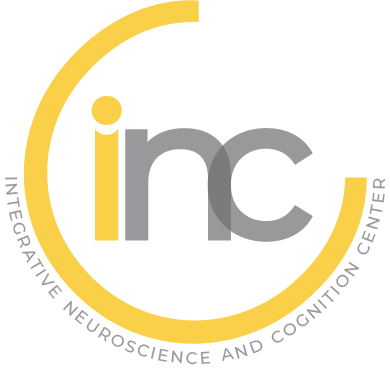Speaker
-
Lola de HeviaINCC - UMR 8002 - CNRS & Université Paris Cité
Relating number to space in infants quantifying and ordering abilities, by Lola de Hevia
Summary Relating number to space in infants quantifying and ordering abilities
The use of spatial information to represent non-spatial domains is a fundamental cognitive ability. One prominent example is the case of numbers, so that numerical magnitudes are represented along a spatial continuum (known as the ‘mental number line’). There are (at least) two ways in which number and space relate to one another: 1. different numerosities map onto corresponding spatial extents, and 2. different numerosities map onto different spatial positions. I will argue that these two mappings are functional at birth, and therefore independent of extensive experience with the environment. In particular, on the one hand, newborns expect that an increase (decrease) in numerosity/duration should be accompanied by an increase (decrease) in spatial length. On the other hand, newborns associate numerosities with spatial positions, so that an increase in magnitude is expected to occur in the right side and a decrease in the left side of space. Overall, these studies provide evidence that number-space links are functional at birth, supporting the view that the ‘mental number line’ is not a product of human invention. Outstanding research questions regarding the cognitive benefits of these mappings will be discussed.
Short Biography
 Maria Dolores (Lola) DE HEVIA obtained her undergraduate degree in Psychology at UCM (Universidad Complutense de Madrid, Spain), and her PhD both at UCM and the Università Milano-Bicocca (Milan, Italy). As a postdoc, she spent time at Harvard University (USA), LPP (now INCC) and NeuroSpin (Paris, France). She was recruited in 2015 as a CNRS researcher at INCC. Her research aims to understand what are the cognitive primitives humans possess from birth/infancy, with a focus on the origins and functional properties of the propensity to use space to represent non-spatial concepts, in particular number. more information
Maria Dolores (Lola) DE HEVIA obtained her undergraduate degree in Psychology at UCM (Universidad Complutense de Madrid, Spain), and her PhD both at UCM and the Università Milano-Bicocca (Milan, Italy). As a postdoc, she spent time at Harvard University (USA), LPP (now INCC) and NeuroSpin (Paris, France). She was recruited in 2015 as a CNRS researcher at INCC. Her research aims to understand what are the cognitive primitives humans possess from birth/infancy, with a focus on the origins and functional properties of the propensity to use space to represent non-spatial concepts, in particular number. more information
